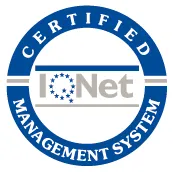
An increasingly popular topic of discussion in today’s business world is the concept known as corporate culture, business culture or company culture. A concept which has become key for the Human Resources area. Every organisation, large or small, whether it knows it or not, has its own company culture. And this directly influences its operations and the perception of its members. This article will explore company culture, its components and its crucial impact on companies. Let’s begin!
Table of Contents
The Company Culture Challenge
Company culture is at the heart of any successful business, however, in many companies the culture only remains only skin deep. Too often, we find that organisations have inspiring mission statements and values, but their workplaces are toxic and dysfunctional. It’s time to move beyond words and address fundamental questions about company culture.
Is your talent strategy part of the company culture?
Company culture cannot simply be a series of well-intentioned HR practices. It must evolve organically from the company’s business strategy. Successful organisations have a “lighthouse identity” that guides everything they do. This identity allows them to stand out in their market and define what they stand for. Building a great culture starts with clearly understanding what your organisation stands for. And, of course, the reasons that explain what the success of your company will be based on. There can be no talent strategy without a sound business strategy.
Has your company culture been clearly defined? It’s time to go beyond words and build a successful and sustainable culture.
Does your company think and work differently?
Successful companies not only think differently but also care deeply about their employees. An effective culture makes a smart company more human and authentic in everything it does. A strong culture enables employees to be provocative and change the way they do their jobs.
Does your company culture convey what it means to be a part of your team?
Culture reinforces a sense of belonging and creates a shared commitment on how to solve problems. In addition to becoming a cardinal element in sharing information and serving customers. Enduring cultures use language and rituals that create a palpable sense of community. This sense of community may seem enigmatic to those not part of it. But even so, it becomes deeply meaningful to those inside and this is what is most important.
Does your company culture encourage learning and performance?
High-performing cultures focus on proficiency, execution and service. This is true, yes, but they are also designed for change and renewal. Success often leads to cultural stagnation, which is why the best cultures are constantly learning and evolving. They seek new practices, adopt ideas from other industries, and keep abreast of emerging trends.
Can your company culture maintain enthusiasm for change even in difficult times?
Keeping up high levels of energy and morale when everything is going well is easy enough. However, today’s competitive environment brings with it a constant stream of challenges. Enduring cultures are resilient and encourage innovation even in difficult times.Their employees, no matter where they are within the company, embrace creative ideas and see mistakes as learning opportunities.

Components of a Company Culture
A company’s culture is made up of several fundamental elements that define its character and its influence within the organisation.
1. Mission
A company’s mission is its raison d’être and value proposition. It is the answer to the questions “Who are we?” or “Who do we serve?”. Defining a clear and realistic mission is crucial. Ultimately, this guides actions and reveals the organisation’s strengths and weaknesses.
2. Vision
A company’s vision focuses on the future and answers the question “Where are we going?”.. It sets out the company’s objectives, which must be realistic in order to maintain employee motivation.
3. Values
The values represent the ethical beliefs that guide the organisation’s behaviour. Honesty, sustainability, proactivity and self-management are some examples. Importantly, they influence the way people act and think within the company.
In addition to these fundamental pillars, other key factors need to be taken into account. For example, people, practices, the company’s narrative or the environment also influence company culture. People are essential in driving culture both inside and outside the organisation. Actions must be aligned with the company’s value statement. The company’s narrative and its origin are also part of the culture, In addition to the work environment and geographical location.
Types of Company Culture
Different classifications exist for different types of company culture. Among these are 4 types proposed by psychologist Roger Harrison:
1. Power culture
Based on an oligarchic system with centralised power and little mobility for employees. Internal communication is often poor, and different area disconnected from each other.
2. Role culture
Prioritises organisational stability and order. However, it may resist change and not be motivating for employees.
3. Task culture
Promotes competitiveness and participation, optimising both material and human resources. However, it can also generate stress among employees.
4. Person culture
Puts people at the centre and seeks to improve productivity. It does this by keeping employees satisfied and motivated. Leadership and communication are key words in this approach.

Importance of a good company culture
Understanding the concept of company culture and establishing one’s own not only serves as a hallmark of identification. It is also an ideal way to make a significant impact in the business world:
- Business agility facilitates adaptation to change. This feature is essential in today’s constantly evolving business environment.
- A focus on business objectives which increases productivity and alignment between all employees and collaborators.
- Talent retention: an attractive culture retains talented employees, helping to create a solid and constantly growing team.
- Satisfactory work climate: a positive work environment fosters employee interest and performance.
As we have seen, company culture is more than just a mission and value statement. Instead, it is a fundamental pillar that influences every aspect of an organisation. Understanding and defining its importance can be the key to long-term business success.. Company culture defines who we are, where we go and how we get there.








